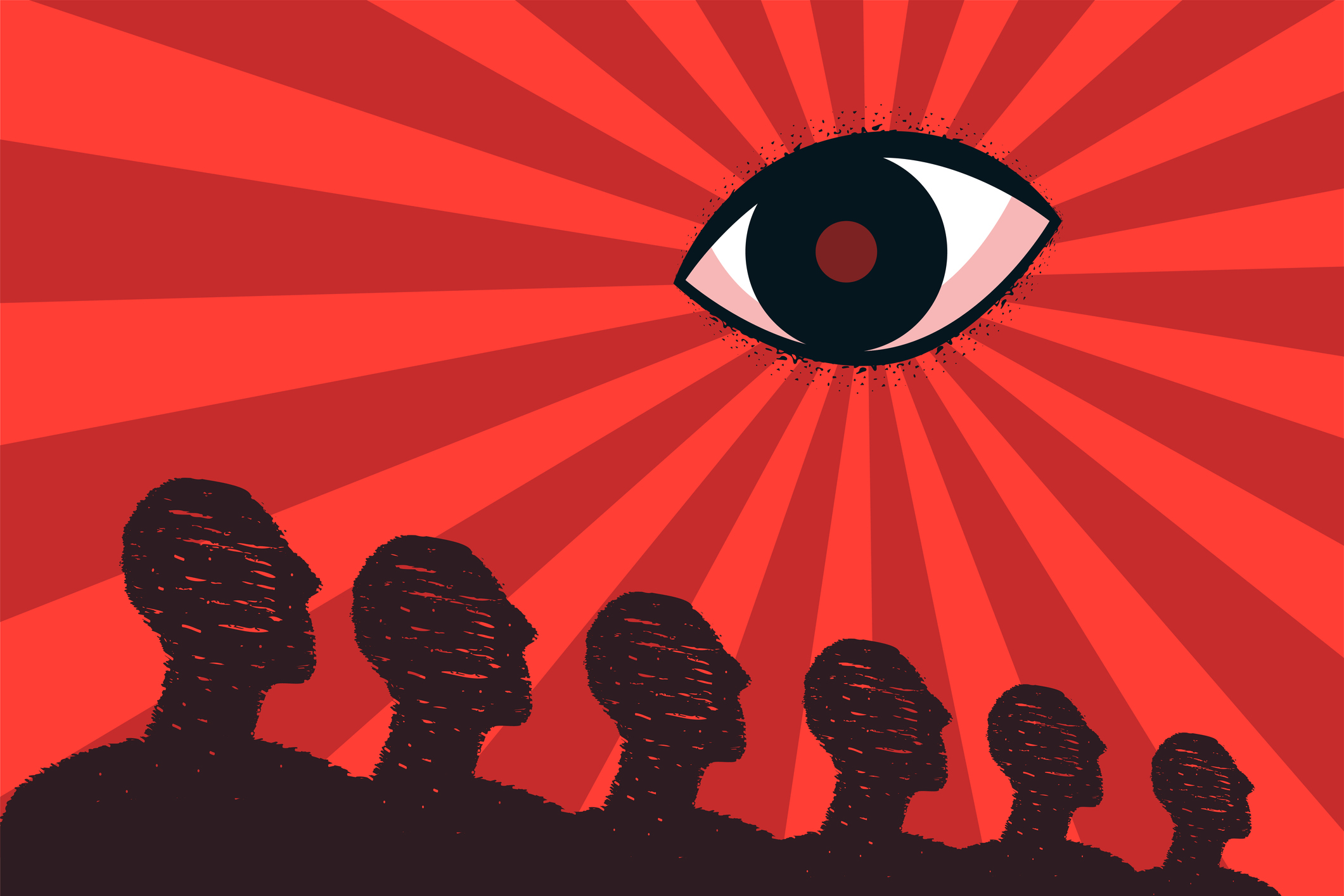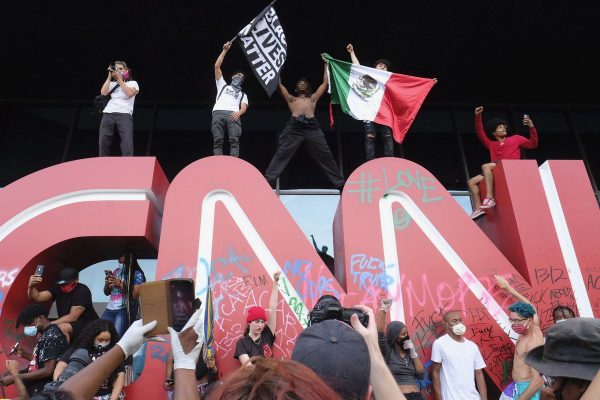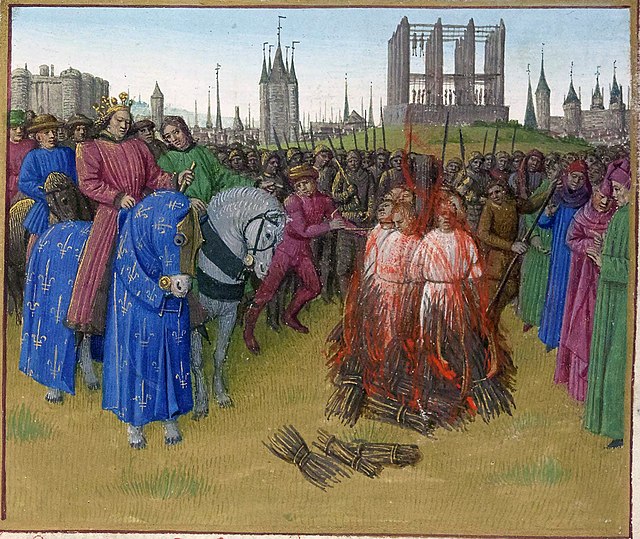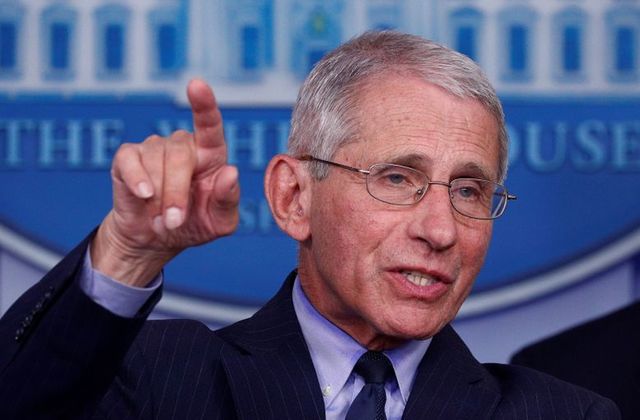How radical relativism leads to ideological fanaticism.
Athens and Jerusalem, Rome and America
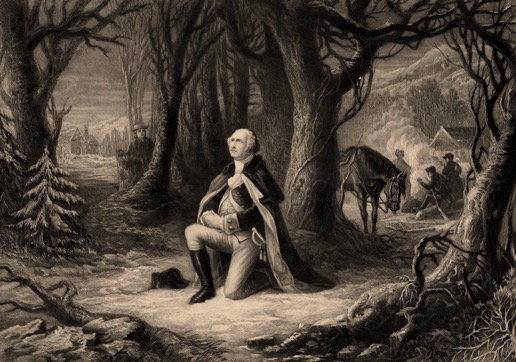
My friend Paul R. DeHart recently took Patrick Deneen to task for his characterization of the American regime. DeHart goes through the evidence of the founding: The Federalist, the structure of the Constitution, the writings of Locke, and colonial preaching and political statements. In these, he persuasively shows that America is not a Hobbesian experiment, but rather a purposeful union of classical and Christian moral thinking.
It may surprise partisans of Deneen’s Enlightenment theory of the American Founding that there is an eminent Catholic theologian that agrees with DeHart’s view of things: Joseph Cardinal Ratzinger. In an essay entitled “A Christian Orientation in a Pluralistic Democracy? On the Indispensability of Christianity in the Modern World,” Cardinal Ratzinger explains that the objective morality required to have a free society cannot have any greater security than in the fusion of classical and Christian thought. Indeed, he points out that the modern democratic system—based on inalienable human rights—has its foundation in this fusion:
This democracy is a product of the fusion of the Greek and the Christian heritage and therefore can survive only in this foundational connection. If we do not recognize this again and accordingly learn to live democracy with a view to Christianity and Christianity with a view to the free democratic state, we will surely gamble away democracy.
But Cardinal Ratzinger adds important commentary in a footnote to the passage explaining the origin of this fusion. He understands that the connection between classical Greek democracy and Christianity to form modern democracy was not inherent to its union. Rather, it took on its modern form because of American congregationalism. It was in this American experiment—quite different from the European Enlightenment theories, like Hobbes—that modern democracy took shape:
To this we must add, by way of clarification, that democracy as understood today need not and did not automatically spring from this root but, in fact, was first shaped under the special circumstances of the American congregationalist type, that is, apart from the classical European traditions of the church-state relationship that developed historically here. Hence it is only in a very qualified sense true that the Enlightenment led to democracy.
Ratzinger insists, however, that the West’s democratic patrimony is richer than even the unique and decisive American experience initially suggests: the congregationalist achievement “should not obscure our view of the existence of fundamental democratic elements in prerevolutionary Christian society.” Nevertheless, at least in the mind of Cardinal Ratzinger, modern democracy owes more to the unique American fusion of classical and Christian ideas (inspired by medieval Christian thought) than it does to European Enlightenment heavyweights like Hobbes.
This American fusion was the animating principle of the nation. Even before the Constitution established the new federal government, the United States, under the Articles of Confederation, included the following (justly celebrated) line in the Northwest Ordinance of 1787: “Religion, morality, and knowledge being necessary to good government and the happiness of mankind, schools and the means of education shall forever by encouraged.”
Here, there was no question what kind of citizens the American people wanted and needed as part of the republic: religious and moral ones. The interest was so great that the organic law of the Northwest Territory required their promotion to ensure good, i.e., republican, government.
As President Washington explained in his farewell address, “of all the dispositions and habits which lead to political prosperity, religion and morality are indispensable supports. In vain would that man claim the tribute of patriotism, who should labor to subvert these great pillars of human happiness, these firmest props of the duties of men and citizens.” The American experiment cannot endure without religion. Washington warns against “the supposition that morality can be maintained” without it. “Whatever may be conceded to the influence of refined education on minds of peculiar structure, reason and experience both forbid us to expect that national morality can prevail in exclusion of religious principle.”
Religion, counsels Washington, is therefore not merely a private good, but an important aspect of maintaining the common good. In preserving a republican form of government, it is crucial. The near entirety of the founding generations of Americans—even if not practicing members of a given Protestant sect—agreed with Washington. Promoting religious practice and liberty is not an Enlightenment project maximizing the ability of an individual to live in a state of nature. It is formative, fostering an ordered environment wherein liberty under law may be secured.
No surprise, then, that the greatest defender of modern democracy is America. Because in its current form—as a fusion of Greek and Christian thought—America is the birthplace of modern democracy. Cardinal Ratzinger, reflecting on this union, understood the debt the free world owed to the American project for providing such a solid ground for modern democracy.
And it is not just our friends, but our enemies that see this. When Al-Qaeda sought to attack the heart of modern Christendom—it passed over Europe. It attacked America on 9/11.
Sadly, many Americans have bought into the lie that America was not founded as a Christian country. One (popular) version of the bogus myth tells us the American Revolution advanced the divinization of the self, actualizing the hedonic pursuit of happiness through a Hobbesian struggle for power. This is backwards. Our forefathers looked across the ocean and saw a continent gripped in ideologies that sought to turn man into a slave to his passions and a plaything of kings.
At that key moment, they took a step back and invoked the King of kings as the true author of their happiness and guarantor of their security. Rejecting the idea that freedom lay either with enlightened despots or by relying solely on reason, they expressed an understanding that government was established by the consent of the governed to secure God-given rights. By doing so, they secured a classical Christian heritage for their posterity. But even more amazingly, by this act of preservation and development, they were able to give Europe back what she lost during the lead up to and during the world wars: Athens and Jerusalem.
Rather than celebrate this American patrimony—which we have shared with the world—many American leaders and educators have tried to distance us from it. But despite these efforts, reason and revelation are still available to us to cut through the constitutional and moral confusion caused by “viewpoint neutrality” liberalism and the onslaught of post-modernism and cultural Marxism. If we are but willing to recover them, these twin pillars of our American heritage and constitutional order can heal our broken and dysfunctional political life.
The American Mind presents a range of perspectives. Views are writers’ own and do not necessarily represent those of The Claremont Institute.
The American Mind is a publication of the Claremont Institute, a non-profit 501(c)(3) organization, dedicated to restoring the principles of the American Founding to their rightful, preeminent authority in our national life. Interested in supporting our work? Gifts to the Claremont Institute are tax-deductible.
Empty gestures won’t stop the march of the woke radicals.
No future awaits those who rage against family, work, and community.
We are hostages to the clerics of an intolerant faith.
The good guys built this country. The good guys can take it back.
The data is in: women aren’t happy.

